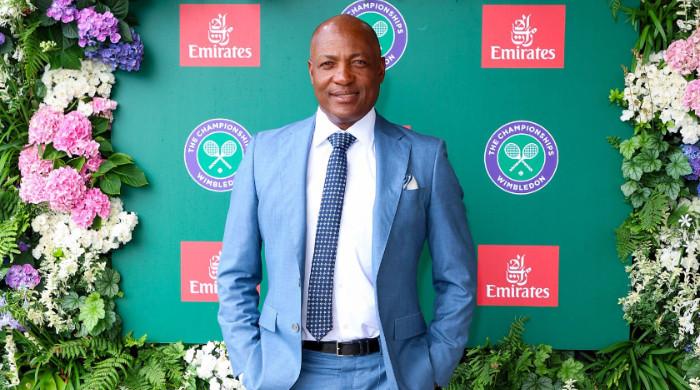Lara Highlights Commitment Concerns Amidst West Indies’ Challenges
MUMBAI: Former West Indies captain Brian Lara has pinpointed a deficiency in financial backing and technological advancements as factors in the team’s persistent difficulties. However, he stressed that players must be motivated by passion and take pride in representing the Caribbean.
Following the West Indies’ loss to India in the initial Test match in Ahmedabad, current Test captain Roston Chase cited “infrastructure problems” and continuous “financial struggles” as significant obstacles for the team.
Lara, a member of the Cricket West Indies (CWI) cricket strategy and officiating committee alongside Chase, supported these concerns while urging players to demonstrate greater dedication.
“To achieve progress, adequate capital is essential. It forms a crucial component,” Lara stated at the CEAT Cricket Rating Awards in Mumbai on Tuesday.
“Concurrently, I would ask Roston Chase and his teammates: is their heart truly in cricket? Are they genuinely committed to playing for the West Indies? This is paramount, as commitment enables one to overcome obstacles.”
Lara reflected on the zeal of West Indies legends, observing that previous generations achieved success despite limited resources.
“We lacked superior facilities 30 to 40 years ago. Viv Richards didn’t benefit from advanced practice pitches. We faced similar challenges, but the dedication was distinct. The desire to represent the West Indies was unparalleled,” he remarked.
“I implore young players to appreciate the remarkable opportunity they have – an aspiration shared by Caribbean parents for their children.”
While acknowledging player frustrations, the 56-year-old also defended those seeking financial stability through franchise cricket, emphasizing CWI’s need to enhance the appeal of international duty.
“I can’t fault players for pursuing cricket careers outside the West Indies due to the significant financial gap,” he noted. “We must establish a system where representing the West Indies is both meaningful and financially viable.”
“Empathy for the player is crucial. Simultaneously, we must consider how to ensure that current and future players recognize the immense importance of playing for the West Indies,” he added.
He identified the proliferation of global T20 leagues as a challenge, urging the board to balance franchise opportunities with national commitments.
“The IPL has secured an exclusive window. However, with six or seven leagues emerging globally, the responsibility falls on Cricket West Indies to unify the efforts of young players seeking external opportunities while ensuring their participation for us.
“In a series against India, we aspire to showcase exceptional cricket against the world’s best team. We need our top players present, not elsewhere.”
Drawing parallels with football, Lara cited Argentina’s Lionel Messi as an example of prioritizing national pride despite playing abroad.
“Consider Argentina: Messi, raised in Europe, represents Argentina despite playing for Barcelona and Paris Saint-Germain. Numerous South American footballers follow this pattern, returning to represent their country with pride.
“Australia and England effectively maintain player loyalty. We must find a strategy, avoiding blame, and unite as administrators, coaches, and players. If West Indies cricket is truly cherished, a path forward will emerge.”
Addressing batting concerns, Lara noted inconsistency among emerging talents like Alick Athanaze, Tagenarine Chanderpaul, Kavem Hodge, and Mikyle Louis, none of whom average above 30 in Tests.
“Selecting players based solely on potential, without supporting statistics, makes it challenging for them to excel at the highest level,” Lara explained.
“This situation may lead to players maturing later. The options are to persevere with players aged 22-25, hoping for benefits in their late 20s, or to consider seasoned players like Jason Holder.”
He concluded by advocating for a stronger domestic system and patience in player development.
“I advocate for stronger first-class performances before entering the international arena. In my era, record-breaking feats were necessary,” he stated.
“Aspiring players spent two years observing cricket, carrying equipment, and only then were they granted an opportunity. This period fostered growth and maturity, albeit at varying paces,” he concluded.



Comments (0)
No comments yet. Be the first to comment!
Leave a Comment